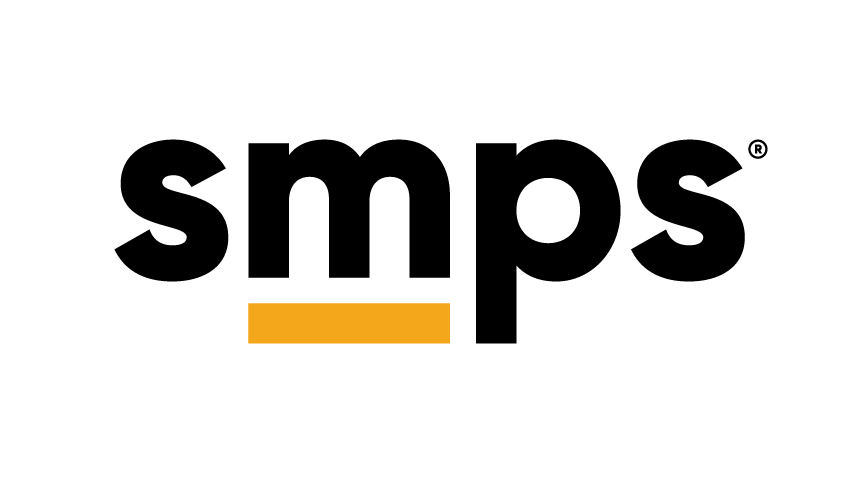



About

1.
President's Message

2.
CEO Message

3.
From the Editor

EMERGING TRENDS
Hot Trends in A/E/C
4.

5.
FEATURE
Cheerleading and Coaching. You Need ’em Both.

6.
DOMAIN 6
Charting AI for AEC Marketers: Optimizing Utilization with Trends, Tools, and Tips

7.
DOMAIN 6
Channel Your Inner Strategist

8.
FEATURE
How to Transform Yourself from Pack Mule to Unicorn

9.
MEMBER PERSPECTIVE
The Importance of Taking Time Off

10.
MEMBER PERSPECTIVE
The Anatomy of an SMPS Volunteer: All-in with Heart, Mind, and Vision

11.
FROM SMPS
Amplify A|E|C Recap

12.
SMPS Connections. Capturing Each Other’s Hearts and Respect.


Interviewer

Doug Parker
Principal, Elevate Advisors
Contributors

Heather Manes
President & Strategic Director, Savage Marketing

Q
The AI conversation has become prolific in business, industry, and especially in marketing. In what ways are you leveraging AI to enhance your marketing strategies? How does this relate to marketers in the AEC industry?
We use AI in diverse ways to deliver personalization and better audience experiences, enhance creative output, and drive efficiency and growth for our team and clients. Generative AI (GenAI) is having an enormous impact on content creation. GenAI is a type of artificial intelligence that can create new content, such as text, images, music, or even code, by learning patterns from existing data. We leverage the large language models (LLMs) such as ChatGPT or Google's Gemini for copy drafts and revisioning across channels such as social media, email and the web. AI has undoubtedly helped shrink the time frame from ideation to deliverable. This allows us to uncover innovative, creative strategies and speed up delivery to help our clients grow.
All marketers, including those in AEC, have access to these use cases and more. The models are getting more sophisticated with each update. In addition to content creation, we also use them for strategy brainstorming, audience and industry research, and metrics analysis. Outside of the frontier LLMs, other AI tools help with ad versioning, audience targeting, social graphic creation, overdubbing videos, SEO, and PPC.
Q
What recent innovations or approaches in the AI space are you using for clients, and what results are you seeing?
Early on, we developed a strategy to educate ChatGPT and Gemini about our clients and their businesses. This has helped potential customers find our clients' solutions within the LLMs. The concept is similar to SEO but for chatbots. For a client that manufactures a construction product, our most advanced strategies utilize nuances of personalization and prediction to target customers and generate leads within a data-infused "walled garden" environment. For example, we partnered with a trade publication to implement an innovative web-based AI engine to serve up content and resource recommendations to users based on behavioral cues and data. Think of this as similar to the way Amazon serves up product recommendations related to recent purchases and search behavior. The program also included targeted email nurturing.
This program has successfully driven qualified leads and shortened the buyer's journey because the right information is getting to the right people in a shorter time frame. To date, campaign results include 451,000 impressions, 37,000 clicks, and over 500 new qualified leads. The campaign was recognized with an AI award from the American Marketing Association.
Q
How are you using AI to assist in lead generation?
In addition to the content recommender already mentioned, SEM also drives qualified leads. Specifically, we're seeing more leads from LinkedIn advertising due to AI-enhanced audience targeting and ad personalization on the platform. Similarly, Google uses AI to target more effectively and create custom ad versions tailored to audience interests. We're also seeing improved click-through and engagement with our efforts in AI-integrated SEM.
Q
What role does AI play in optimizing search engine marketing (SEM) and search engine optimization (SEO)?
As for SEM, Google and the social platforms have been providing advertising tools like audience targeting, bidding, identifying high-performing keywords, and enhancing conversion rate optimization as well as predictive versioning for a while. Like SEO, it requires an experienced (human!) specialist who can really dig into metrics, apply best practices, and adjust.
The launch of GenAI tools such as ChatGPT and Gemini happened around the same time Google was transitioning to Google Analytics 4, which focuses more on how users interact with content rather than just counting visits. This shift aligns with the growing importance of understanding user behavior and content interaction, crucial for optimizing digital strategies.
As part of this sea change, Google also rolled out Performance Max (PMAX) for advertisers. This service uses AI to provide various ad formats like video, image, and text and offers smarter options for targeting audiences, creating ads, and testing campaigns. Both of these developments reflect Google's broader strategy to integrate AI into its services, improving user experience and providing businesses with more effective tools for engagement and advertising. This transition is part of a larger trend towards personalization and data-driven decision-making in digital marketing and analytics.
Admittedly, AI has thrown the SEO industry into a bit of a tailspin. Google's Search Generative Experience (SGE) answers Google queries with AI Overviews compiled from a few web sources so the user does not need to click further. In addition, users might not even go to Google with a query, instead asking ChatGPT or another LLM. This has the potential to dramatically reduce website traffic. So everyone is still trying to figure it out.
Our philosophy is that SEO is not a "set it and forget it" strategy. With AI changing search and frequent algorithm updates, it requires deep SEO expertise, constant attention, and monitoring to yield gains like traffic growth, SERP features, and page 1 keywords. We're keeping a close eye on SEO trends, doubling down on best practices, and using tools with AI features baked-in, such as Copilot in Semrush.
AI Fears, Security, and Limitations
AI Fears, Security, and Limitations
Q
There have been many conversations about AI taking knowledge-worker jobs. What threat, if any, does AI pose to marketers?
Several months ago, Sam Altman, CEO of OpenAI, predicted in a book called Our AI Journey by Adam Brotman and Andy Sack, that AI will handle 95% of marketing work. For marketers, this is sobering. Jobs will change, that is certain. But the biggest threat is digging your head in the sand and not learning about it or how it can make you more effective at your job.
Another way to think about it is "AI won't replace marketers, but marketers who use AI will replace marketers who don't," a riff on a quote by Harvard Business School professor Karim Lakhani. For related evidence, Harvard Business School and Boston Consulting Group conducted a study that showed impressive productivity gains with AI: consultants using AI were more productive and produced higher quality work than consultants without AI. Reimagine how AI can improve your job, free you up to do more of what you enjoy, and go deeper to help your business grow and differentiate. At Savage, we expect all of our marketers to embrace and actively use AI.
Q
How are you overcoming fear inside your organization as you embrace AI?
We view ourselves as an AI-forward organization, and since our inception, we've embraced a mindset of education, communication, and experimentation. Education is the salve for fear, so we encourage employees to learn and practice as much as possible in their areas of expertise while keeping tool limitations in mind. In addition, we have created space in our organization to share learnings as well as mistakes with each other. We have multiple team members taking on and experimenting with a number of different tools, channels, and technologies to see what works and is the most relevant to our business.
Q
What security and ethical issues should be considered when using AI?
Be cognizant of the potentially private or confidential data you input into models. The LLMs use prompts and feedback as reinforcement learning in fine-tuning models. For many of the LLMs, you have to pay to get better security. A rule of thumb is that if it is public information, i.e. front-facing on a website, it's probably fine to enter into the model. Also, read the fine print regarding meeting transcriptors. You might want to disable them. It's tempting to get a nice summary and action items after client meetings, but you might have discussed sensitive NDA-protected information that your client would not want used to train a large language model.
That said, we've used Otter.ai to generate pro-dev webinar transcripts complete with summaries, which has been helpful to share with the overall team. Remember that you do not own anything generated by an AI model. You cannot copyright anything generated by AI. That includes everything from slogans and articles to logos and images. This may not pose a big issue to the agency but it will impact the client who typically needs to own the copyright or trademark to their identity and content. The ethical way to use it is to provide guidelines and education, always with a human in the loop, and keeping an eye out for bias and misinformation.
Tools, Education, and Recommendations
Tools, Education, and Recommendations
Q
What AI-powered tools or platforms would you recommend for AEC marketers?
ChatGPT is good for researching, writing/rewriting, and even strategizing, but it is also a good idea to use and test the other major frontier models, such as Google's Gemini and Anthropic's Claude. We like Perplexity.ai because it sources without prompting. There was an AI tool explosion in 2023. Chat GPT is getting so advanced and multi-modal, with image, video, and analysis capabilities coming soon, that it can do what many of these tools offer. You just need to know how to prompt accurately. For ad versioning, we use Creatopy. For social graphics, we use AI capabilities built into Canva. For voiceovers, we've had luck with Murf.ai. These tools have resulted in welcomed production efficiencies.
A/E/C trends to watch out for include AI-enhanced VR and AR, which are increasingly used to provide immersive experiences for virtual walk-through building designs or to see how a construction project will evolve. Similarly, AI can create interactive 3D models of projects that clients can explore online. This application is particularly effective for showcasing large-scale construction projects or innovative architectural designs.
Here are some tips regarding tools. First, seek out the AI tools in your existing tech stack. Then, research what's not available there. Whatever tools you use, it is important to test them. Don't jump into a yearly contract unless it costs under $100; go month-to-month instead, so you are free to cancel.
Q
What AI-powered tools or platforms would you recommend for AEC marketers?
Courses
The Marketing AI Institute's monthly free Intro To AI for Marketers webinar is a great place to start. (MAII also produces a very informative weekly podcast, newsletter, and several courses for marketing AI certification. They are a wealth of information.)
HubSpot Academy offers a free online course, AI for Marketers that provides a foundational understanding of AI and its applications in marketing.
Coursera's Generative AI for Everyone is a good overview course about AI.
People and Online Publications:
Neil Patel is an excellent resource for AI digital marketing trends in his YouTube videos, podcasts, and webinars. He's also on top of the latest SEO trends. Search Engine Land offers the latest developments in SEO and digital marketing, with a growing focus on the role of AI in the field.
Q
What should leaders look for in hiring marketing candidates with AI skills?
Seek out lifelong learners and candidates with a willingness to use AI and learn new skills. Also helpful is flexibility and an open mind that a job today might look different next year. Ask candidates how they currently use AI and have them provide you with specific examples of tools, successes, and even learnings.
AI Deployment
AI Deployment
Q
What are some of the first steps and best practices that marketing departments and firms should take in deploying and utilizing AI?
- Provide training and education. Encourage experimentation and mandate safe and ethical use.
- Develop an AI policy outlining guidelines for use.
- Develop an organized process for vetting tools. Assign an owner to a tool or use case and encourage teams to explore and test for 4-6 months, then keep or cancel.
- Start using free versions every day. Keep a Gemini or ChatGPT tab open and regularly ask the model questions that crop up in the daily workflow. The more you use it, the better you will get at prompting, plus you will begin to discover different use cases.
- Go deeper into use cases. Identify what is data-driven, repetitive, or automated and where predictive information might be helpful. How could the tools help you improve efficiencies for you and your team? How could it help produce better-quality work?
- Develop an AI council to info-share across the company. This can be as simple as a Slack channel or a more formal monthly meeting of the minds and show-and-tell. It is also helpful to ask other marketers outside of your company — other agencies, other client-side marketers, and the organizations, such as SMPS, that we are active in. We can all learn from each other!
Q
How are you sharing your AI use with your clients?
We educate them constantly on how AI is changing the landscape and how it is making our work better for them. We also disclose its use in our yearly planning agreements.
Q
The world of AI is in constant flux. Is there anything you are experimenting with or excited about on the horizon?
We are excited to experiment with GPTs, creating custom GPTs for various tasks and digital twins and custom GPTs by role (such as a marketing specialist) that mirror and support IRL teams. We are curious to see if the AI assistants will uncover creative insights we have not considered. We're also looking forward to testing text-to-video tools as well as tools for editing longer-form videos into clips. For 2025 planning, we look forward to gaining insights into target audiences using synthetic focus groups.
We're hearing that the latest model of ChatGPT will offer more capabilities and could come as soon as this fall. Then there is always interesting conversation speculating when the models will reach AGI (artificial general intelligence), when they equal or surpass human intelligence, can operate across domains, and can learn, improve, and solve problems independently.
As for regulation, we are monitoring the New York Times vs. OpenAI lawsuit to see what is decided regarding attribution and copyright infringement. This case could lead to some interesting licensing agreements. Other regulations we'll watch include the EU AI Act and California's SB-1047 "Kill Switch" legislation. Again, we are always conservative and cautious when using client information due to data privacy and client confidentiality needs.
Savage Marketing is a results-driven strategic advisory group focused on helping businesses grow, differentiate, and build value. We collaborate with clients and take an innovative, human-centric approach. Our parent company, Savage Brands, has specialized in branding, culture-building, and corporate communications for over 50 years. For its entire history, it has been at the digital forefront and pioneering "what's next" in the world of marketing, branding, and communications.








